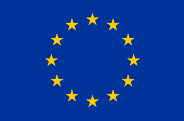
Safe non-food consumer Products in the EU and China
The European Commission is the institution that ensures EU laws are respected, manages EU policies and allocates EU funding. It also works closely with stakeholders and international regulators, both bilaterally and in multilateral fora.
Appointed national authorities are responsible for the enforcement of product safety legislation. They carry out market surveillance, through which they notably check whether products available on the market are safe, ensure that rules are applied by businesses and order sanctions when necessary. The Commission works closely with market surveillance authorities in the Member States to ensure coordination and consistency between their actions and that the laws are properly enforced.
EU Safety Gate/RAPEX – This system enables information on measures taken against non-food dangerous products to be circulated quickly among the national authorities responsible for product safety in the EU. In practice, when a national authority notifies a corrective measure adopted to remove a dangerous product, for example, all the other authorities are immediately alerted and can check whether that product is also sold on their market and take any follow-up measure. Notifications submitted to the EU Safety Gate/RAPEX system include product recalls as well. The system is covered in more detail in another module.
The role of product safety standards – “European standards” exist in the EU and products complying with these standards are presumed to be in conformity with the essential safety requirements, if the standards are referenced in the Official Journal of the European Union (OJEU). A harmonised standard is a European standard developed by a recognised European Standards Organisation: CEN, CENELEC, or ETSI. A standard is created following a request from the European Commission to one of these organisations. Manufacturers, other economic operators, or conformity assessment bodies can use harmonised standards to demonstrate that products, services, or processes comply with relevant EU legislation. You can learn more in the section on The European Standardisation system and how to find relevant standards.
Safety of products sold online – Besides legislation, the Product Safety Pledge is aimed at increasing the safety of products sold online by third-party sellers via online marketplaces. Via this voluntary pledge, currently 11 online marketplaces notably commit to go beyond their legal requirements, for example by regularly checking the EU Safety Gate portal and removing dangerous product listings from their websites when identified. The goal is to improve the detection of unsafe products marketed in the EU before they are sold to consumers.
‘Coordinated Activities on the safety of products’ (CASP) – The European Commission funds coordinated market surveillance activities to enhance European level market surveillance efforts. Cross-border cooperation work includes:
Learn more about the work of the European Commission
Learn more about safety issues on Safety Gate: the EU rapid alert system for dangerous non-food products
Learn more about Coordinated activities on the safety of products (CASP)
Learn more about the EU’s Product Safety Pledge

This website was created and maintained with the financial support of the European Union. Its contents are the sole responsibility of SPEAC project and do not necessarily reflect the views of the European Union.